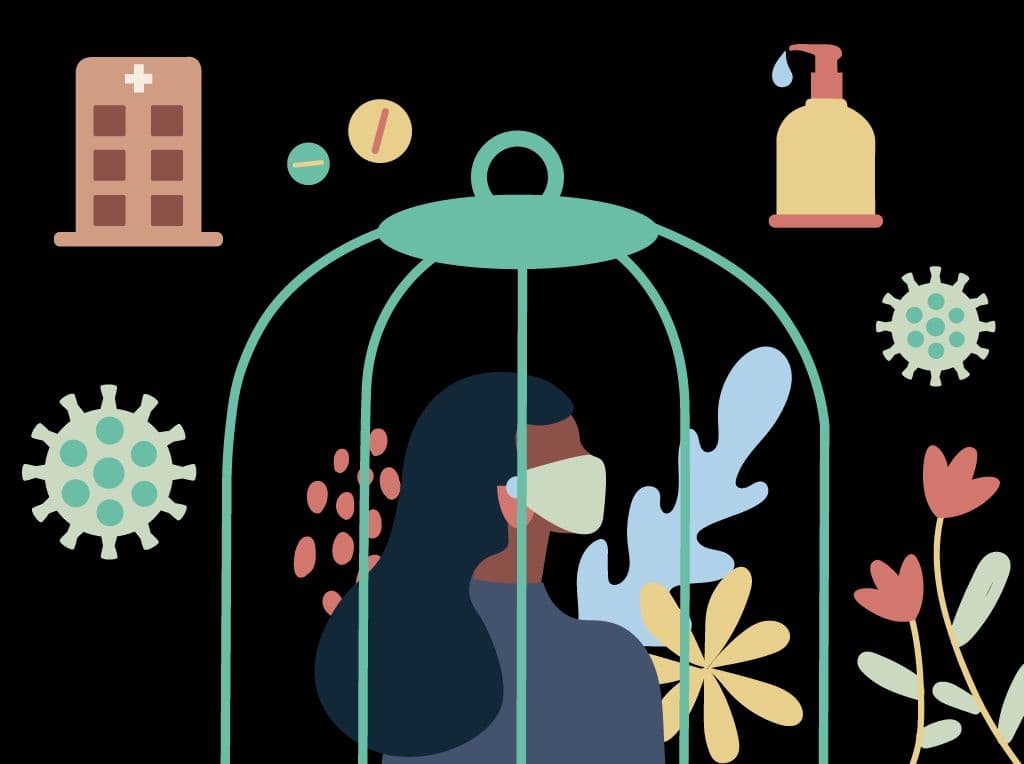India has over 80,000 confirmed cases of the novel coronavirus. On April 6, India’s health ministry said that 24% of the total confirmed cases were women. Despite occupying a lower percentage of total patients, a pandemic affects women more adversely than men. The Ebola outbreak in the continent of Africa revealed the gross inequities in access to healthcare for women. According to a report by the Annals of African Medicine, women were exposed more to the fatal disease than men, owing to the larger role they played in care-giving – at the home and on the field, while nursing the sick.
Women in India are increasingly at the frontline for contracting the coronavirus – both at work and at home. In India, female health workers make up for half of the health workforce in India. In a country where gender stereotypes are heavily associated with certain professions, it’s not hard to assume that one will encounter a female nurse more often than a male one.
Women who stay at home are also equally susceptible to contracting the virus. Less than 50% of women in India are in the overall workforce – which means that most women stay at home, and will be expected to care for their families, and those who are sick.
Women in India are vulnerable during this pandemic and their problems have been exacerbated by a fragile healthcare system, which lacks facilities for women. According to the UN Population Fund (UNFPA), the biggest priorities for women’s health during the coronavirus include antenatal and postnatal care, access to modern contraception and emergency contraception, and safe abortion and post-abortion care “to the full extent of the law” in all areas where services are likely to be impacted. However, this seems like a hard reality in India right now.
Women’s health has taken a backseat
Women’s healthcare is often only taken seriously during pregnancy. While facilities are available in some hospitals for pregnant women in India, the coronavirus has taken precedence over everything. According to an ongoing report by a development consultancy, most ambulances in states like Bihar and Uttar Pradesh are being used for COVID-19 and to bring symptomatic cases to the primary health centers. This has increased cases of home births, leading to less institutional births as well as no access to family planning services.
Antenatal and postnatal care for women has also taken a backseat as hospitals have made coronavirus patients their top priority. Post-natal care is crucial in maximizing the health of both the mother and the newborn. In Jawaharlal Nehru Medical College and Hospital (JLNMCH), a government hospital in the city of Bhagalpur in Bihar, contraception and elective cases of abortion have been deferred indefinitely.
Saurabh (name changed), a doctor at JLNMCH, admits that there aren’t many patients admitted with coronavirus symptoms in his hospitals. “Hospital wards are being diverted towards coronavirus patients although the rate of admission is not large. That’s because this is the only hospital in east Bihar catering to at least 10 districts of both Bihar and Jharkhand.”
Even if coronavirus patients don’t fill up wards, women will be the last ones to get access to the beds, unless they are in labor. The subtle discrimination between patients stems from the belief in several areas of India that women’s health is not as important as the health of a man.
Menstrual health is being neglected even more
At a time when women are confined within their homes, another area of concern, which has taken a backseat, is menstrual health.
“Last week, a woman who turned up at my hospital complaining about heavy bleeding during menstruation was simply given painkillers for symptomatic relief. Further follow up on her will be difficult as JLNMCH has become a dedicated hospital for coronavirus patients,” said Saurabh.
Women in India already lack access to pads and other sanitary items for menstruation. That is set to increase as production of sanitary hygiene products has fallen owing to the coronavirus lockdown across the world. Reports of female healthcare workers in China struggling to change sanitary pads and being forced to use diapers during menstruation has already raised a furore. India’s problem is worse – not just female healthcare workers are at risk owing to poor menstrual hygiene, but millions of women living in slums, with little to no social distancing, are at risk of contracting some other disease if they neglect their menstrual health.
Women’s health, along with women, is marginalized
India’s cases of coronavirus are rapidly rising, with the flattening of the curve seeming unlikely over the next few days. During and after the lockdown, measures to alleviate the marginalized need to take effect. Women’s health has been on the sidelines for years, and the coronavirus lockdown is set to push it further into the fringes.
Several women are currently facing physical abuse from their partners at home and bearing the physical pain at home. Lack of institutional facilities such as helplines and increased unemployment has exacerbated health concerns for women, who have no place to go, and choose to bear physical violence, further affecting their health.
The lockdown has also increased male dependence on women, who are seen as the primary caregivers in households – particularly in rural areas. Thousands of symptomatic women are choosing to stay at home rather than report their illness to the local primary health center, either owing to social norms which dictate that money shouldn’t be spent on women for healthcare, or the need for women to stay at home and take care of the family.
Routine immunization has also been suspended across several states – increasing the burden on the mother for her child’s health. Women who approach the primary health center or secondary health center with their sick child will be more susceptible to diseases, along with their child.
Women are also plagued by lack of access to information on the coronavirus. A major source of information for people in India, particularly in the hinterlands, is social media, especially WhatsApp. However, there is a 33 percentage-point gender gap in mobile ownership in India. This leads to a scenario where women are mainly dependent on the male members of their family for information related to COVID-19, some of which may or may not be correct.
“COVID-19 has the propensity to augment the existing inequities faced by women. Since most women in rural India are not well educated, they are dependent on the men for any form of information. This can lead to misinformation and disinformation about the virus, how it is spread and how it can be prevented”, said Kriti Kapur, a junior fellow at the Health Initiative of Observer Research Foundation (ORF).
In a country where a woman led a team to design India’s first indigenous coronavirus testing kit, thousands of women await equal access to healthcare during the coronavirus. Social norms and lack of facilities continue to hold them back.

